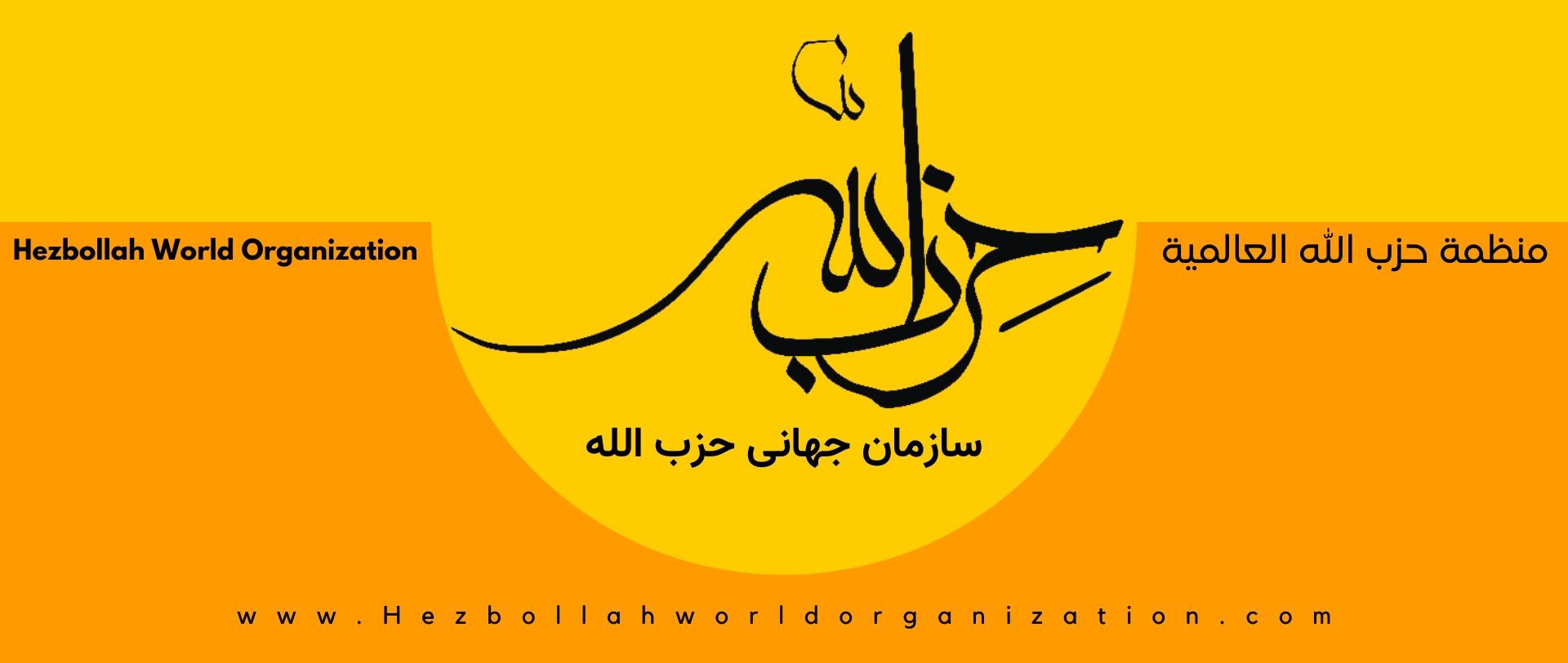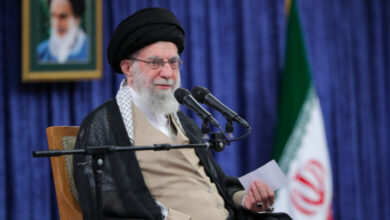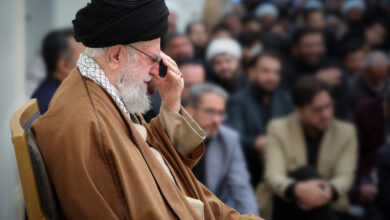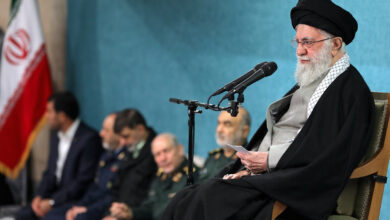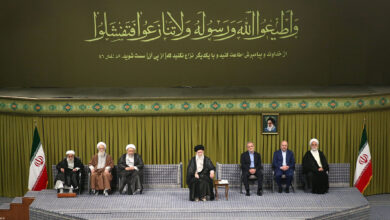The Authenticity and Principles of the Supreme Leader’s Remarks in the Meeting with Senior Officials of the Three Branches of Government (1404/01/26)
Table of Contents of the Supreme Leader's Speech at the Beginning of the Year 1404 [1]
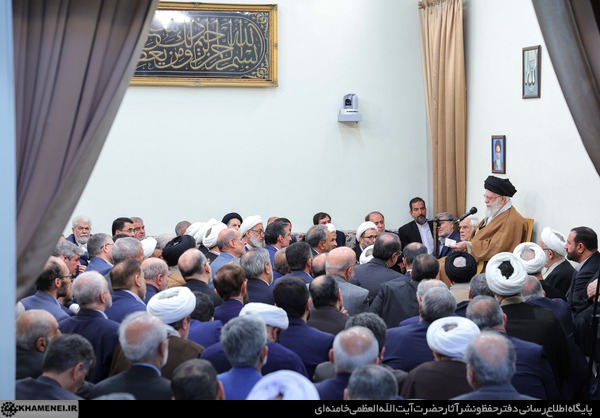
the Name of Allah, the Most Gracious, the Most Merciful
Table of Contents of the Supreme Leader’s Speech at the Beginning of the Year 1404 [Solar Hijri] [1]
One: The Principle of Focused Attention on the System’s Central Theme at the Beginning of Each Year
Two: The Principle of Utilizing Top Officials for Implementing the Year’s Central Slogan
Three: The Principle of Investment in Production
Four: The Principle of Aligning Sanctions Neutralization with Anti-Sanction Negotiations
Five: The Principle of Combating the Zionist Regime
Six: The Principle of the Divine Nature of Confronting the Zionist Criminal Gang
Seven: The Principle of Preventing the Dilution of the Year’s Slogan and Related Efforts When Cascading Down from Senior Officials to Sectoral Authorities
One: The Principle of Focused Attention on the System’s Central Theme at the Beginning of Each Year
- Principles:
- The principle of New Year greetings for its beneficial utilization based on good intentions.
- The principle of the necessity for all agencies to heed the year’s slogans.
- The principle of the need for real and practical benefit from good intentions at the start of the New Year. [2]
- The principle of the necessity to base all activities of executive agencies on development plans and prevent their deviation or weakening. [3]
- The principle of the need for all agencies’ attention and practical commitment to the year’s slogans as the country’s executive strategy. [4]
- Challenges:
- Non-compliance of some agencies with development plans and movement on parallel or contradictory paths. [5]
- Reduced effectiveness of long-term plans due to the siloed performance of agencies. [6]
- Diminished role of the year’s slogans in the executive planning of some agencies. [7]
- Superficial or purely propagandistic interpretations of the year’s slogans without a deep understanding of their content. [8]
- Forgetting good intentions due to officials’ excessive preoccupation with executive affairs. [9]
- Plans:
- Systematic and continuous monitoring of agencies’ performance conformity with development documents. [10]
- Requiring agencies to submit performance reports based on indicators specified in the development plan. [11]
- Institutionalizing the year’s slogan in the form of specific executive programs in each agency. [12]
- Continuous assessment of the extent to which the year’s slogan is realized in agencies’ performance. [13]
- Realizing good intentions through follow-up and pragmatism. [14]
Two: The Principle of Utilizing Top Officials for Implementing the Year’s Central Slogan
- Principles:
- The principle of the necessity of using experienced and trusted individuals to serve the family and the system. [15]
- The principle of the need for consensus and empathy among the spouses of officials.
- The principle of the need for officials to pay attention to home and family when accepting governance responsibilities.
- The principle of the need to maintain a balance between governance responsibilities and roles within the home and family. [16]
- The principle of the lawful executive establishment of the year’s slogan through diligent pursuit of its implementation.
- The principle that decision-making is a necessary condition, managerial enthusiasm is an enabling condition, and follow-up is a sufficient condition for realizing the year’s slogan. [17]
- The principle of implementing the year’s slogan with minimal cost by institutionalizing frugality as a central tenet. [18]
- Challenges:
- Overlooking the capacity of motivated and experienced individuals due to political or subjective views. [19]
- Disregarding the family’s capacity to support officials due to intense executive engagement. [20]
- Insufficient attention to the role of experienced individuals in decision-making and management. [21]
Footnotes:
[1]. The Supreme Leader’s statements during a meeting with a group of senior officials from the three branches of government; on Farvardin 26, 1404 (SH) [corresponds to April 15, 2025, if 1404 SH starts March 21, 2025].
[2]. God willing, you and your families can make the best use of these good intentions and bring to fruition what Dr. Aref, who is truly an experienced person, has said and stated.
[3]. The country’s development plan is very important. Once a plan is approved, all agencies must align themselves with it.
[4]. All agencies must pay attention to the slogan of the year. The slogan of the year is not just a word or a banner; it is a strategy, a general line of movement.
[5]. If each agency wants to define a separate path for itself, not only will coordination be lost, but the entire country’s development plan will also be weakened.
[6]. If agencies are not coordinated and each goes its own way, the country’s macro-planning will remain sterile.
[7]. The slogan of the year should not just remain on banners and signs; it must be manifested in decisions, in plans, in actions.
[8]. These slogans have expert backing and reflection; if treated superficially, their effect will be lost.
[9]. Some officials, when they enter the field of responsibility and work, their enthusiasm for work and interest in work preoccupies them so much that they forget they have children, a wife, duties, a home, and that they should have lunch and dinner together, and they completely forget. Do not forget.
[10]. It must be examined how much each agency complies with the development plan; if there is any deviation, it should be corrected quickly.
[11]. Agencies must report their performance based on the development plan’s indicators so that an accurate assessment can be made.
[12]. In every ministry and institution, there should be a specific committee or structure that translates the slogan of the year into executive programs.
[13]. Supervisory bodies and the media must follow up to see if the slogan of the year has actually been implemented or just stated.
[14]. Bring these to the stage of action and realization.
[15]. We must benefit from these valuable assets, those who are truly compassionate towards the people, the country, the system, and the family. They have experience, they have been tested, they are compassionate, they are motivated.
[16]. Do not forget that alongside these important tasks, you have a spouse, children, a home, a life, a wife; you must attend to these as well.
[17]. Decision-making is a necessary condition, but it is not a connecting condition. The connecting condition is managerial enthusiasm; enthusiasm for execution, enthusiasm for follow-up, enthusiasm for getting the job done. But it is not a sufficient condition either. The sufficient condition is the follow-up of the work and pursuit until the result is achieved.
[18]. There must be frugality in all government expenses; it should become a permanent practice. You must accustom yourselves to frugality.
[19]. We sometimes sideline capable individuals due to differences in taste. Whereas the system and the family need these experiences.
[20]. Some officials, when they enter the field of responsibility and work, their enthusiasm for work and interest in work preoccupies them so much that they forget they have children, a wife, duties, a home, and that they should have lunch and dinner together, and they completely forget. Do not forget.
[21]. He is experienced, he truly said and stated…
For the full text, please refer to the Products section.
